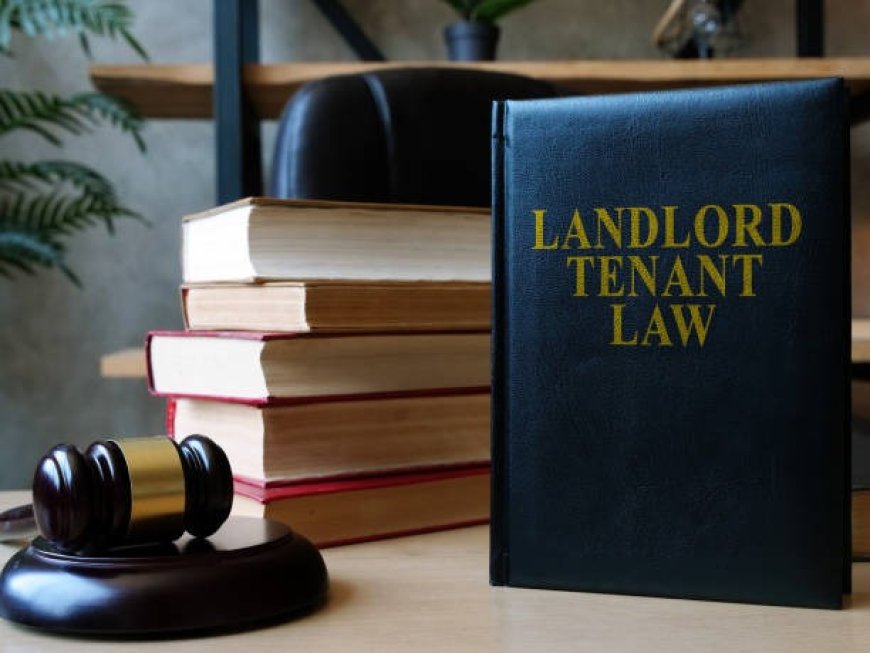Landlords' Guide to Rental Laws in North Dakota

Navigating rental laws in North Dakota can feel overwhelming, but it's crucial for your success as a landlord. You need to understand key aspects like lease agreements, security deposit rules, and tenant rights. Each element plays a vital role in maintaining a positive relationship with your tenants. So, what exactly do you need to know to protect your interests and comply with state regulations? Let's explore the essential components that every landlord should grasp.
Understanding Lease Agreements in North Dakota
When you're entering into a lease agreement in North Dakota, it's crucial to understand the essential components that protect both you and your tenants.
A well-drafted North Dakota lease agreement should clearly outline the terms, including lease duration, rent amount, and responsibilities. Familiarize yourself with North Dakota landlord tenant laws to ensure compliance and avoid potential disputes.
One key aspect is setting a fair rent price based on market rates and property conditions, which can help attract and retain tenants. Always include clauses addressing maintenance responsibilities and termination procedures to provide clarity for both parties.
Security Deposit Regulations
After establishing a solid lease agreement, you'll want to pay close attention to security deposit regulations in North Dakota.
The law allows you to collect a maximum of one month's rent as a security deposit. You must provide a written receipt for the deposit, clearly stating the terms. When a tenant moves out, you need to return their deposit within 30 days, minus any deductions for damages or unpaid rent. If you withhold any part of the deposit, you must provide an itemized list of deductions.
Familiarizing yourself with these rules is essential, as failing to comply could lead to issues under North Dakota eviction laws. Being proactive will help you avoid potential disputes down the line.
Tenant Rights and Responsibilities
Many tenants may not fully realize their rights and responsibilities when renting in North Dakota. As a tenant, you have the right to a safe and habitable living space, meaning your landlord must maintain the property and address repairs promptly.
You also have the right to privacy; your landlord can't enter your unit without proper notice, except in emergencies. On the flip side, you're responsible for paying rent on time and following the lease terms. It's essential to keep the property clean and report any maintenance issues.
If you decide to have guests, make sure they don't violate any lease agreements. Understanding these rights and responsibilities helps create a positive rental experience for everyone involved.
Eviction Process and Legal Requirements
Understanding the eviction process in North Dakota is crucial for landlords, as it ensures compliance with legal requirements and helps avoid costly mistakes.
First, you must provide a written notice to the tenant, stating the reason for eviction and allowing them time to remedy the situation, if applicable. Common grounds for eviction include failure to pay rent or lease violations. If the tenant doesn't comply, you can file an eviction lawsuit in the local court. Be prepared to present your case, including documentation and evidence.
If the court rules in your favor, a judgment will be issued, allowing you to obtain a writ of eviction. Always follow the legal process to avoid complications or delays.
Maintenance and Habitability Standards
As a landlord in North Dakota, you must prioritize maintenance and habitability standards to ensure your rental properties are safe and livable. This means keeping your units free from health hazards like mold, pests, and structural issues.
Regularly inspect your properties and address any repairs promptly, whether it's fixing leaks, maintaining heating systems, or ensuring electrical safety. You're also required to provide essential services such as water, heat, and sanitation. If tenants raise concerns, respond quickly and professionally; keeping communication open can prevent larger issues.
Conclusion
Navigating rental laws in North Dakota can seem daunting, but you've got the tools to succeed. By understanding lease agreements, security deposit regulations, and tenant rights, you can foster positive relationships with your tenants. Staying informed about eviction processes and maintenance standards will help you manage your properties effectively. Remember, compliance not only protects you legally but also creates a safe and welcoming environment for your tenants. Stay proactive, and you'll thrive as a landlord in North Dakota.







